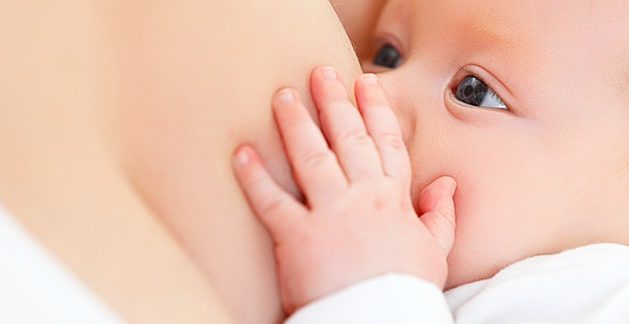Is my baby getting enough milk?

It’s hard for you to know if your baby is getting enough milk since they can’t communicate yet. Fortunately, there are some signs to help you understand if your baby is having their fill. Read more below.
Weight Gain
Weight gain is the most accurate way to determine if your baby is getting enough milk. Most newborns lose at least several grams in the first couple of days before they start to steadily gain weight. They are usually back to birth weight by 2 weeks of age. Breast-fed babies gain an average of 0.11 kg- 0.22 kg a week in the early months.
Diapers
After the fifth day of life, baby should have at least 5 or 6 wet diapers a day containing urine that is pale and odorless. If you have trouble determining if the diapers are wet, place a piece of toilet paper in the front portion of diaper when changing your baby. If it is saturated after several hours, you’ll know baby is urinating frequently.
Baby should have at least 2 bowel movements every day. The early bowel movements will be black and tarry, but by the 4th day, they should become more mustard/yellowish in colour and loose in consistency, maybe even seedy.
Swallowing
You should hear swallowing every couple of sucks. It will sometimes take a couple of minutes for your milk to flow before you hear frequent swallowing. If your baby is swallowing infrequently after the first few days of life and is feeding often for 45-60 minutes at a time, call your lactation consultant or your baby’s health care provider for assistance.
Breast Changes
Your breasts should feel softer and look smaller after nursing, however it is common to have larger breasts in the first few weeks of nursing. As your milk supply evens out with baby’s demands, breasts may become closer to pre-pregnancy size.
If you notice these signs, your baby is getting enough milk:
- Your baby is feeding at least 8 to 12 times a day
- Breastfeeding feels comfortable and pain free in your breast and nipple after the first few sucks, once your milk has let down
- Your nipple has the same shape as when the feed began, or is slightly elongated.
- Your baby has a healthy colour, and has firm skin that bounces right back if you pinch it gently.
- Your baby is alert when he is awake, and readily asks for feeds.
- Your baby changes rhythm while sucking, and pauses during feeds. He should start feeding again when he’s ready, and come off your breast spontaneously when he’s finished.
If your baby is not getting enough milk, you’ll notice one or more of these signs:
- Your baby doesn’t regain his birth weight by the time he is 14 days old. In this case please consult your doctor immediately.
- Your breasts don’t feel softer after feeds.
- Your nipple looks misshapen or pinched at the end of a feed, or feels sore or damaged.
- Your baby is unsettled after feeds.
- Your baby is wetting fewer than five to six nappies at around five days old, or fewer than six to eight nappies in a 24-hour period if he’s older than five days.
- Your baby poos fewer than twice a day by five days old and the poos are not runny or yellow coloured. After a few weeks some babies poo only every few days, but dry nappies and scanty poos suggest your baby is not getting enough fluid .
- Your baby’s skin becomes more yellow, instead of less, after the first week.
- Your baby is sleepy for most of the time and you have to wake him to feed.
- Your baby has dimples in his cheeks or makes clicking noises while breastfeeding. This is a sign that your baby is not latched on properly.
Breastfeeding moms should consume a healthy balanced diet with adequate amounts of liquids in order to ensure an appropriate consistency and fluency of the breast milk. This is important for the baby to get full after each feed and to be able to sleep well.
Mothers should give the baby enough time at each breast in order for him to reach the hind milk and get an adequate amount of fat from each feed.
Related Articles

Join Aptaclub
Get week-by-week updates on your baby’s development and your pregnancy. Receive expert advice, postal packs for your stage and much more

Monitor your child’s growth
Compare your child’s weight with other children their age
Need advice?
Our team of experts is ready to answer your questions and support you on your journey from pregnancy to toddler hood. For more information and relevant advice, please contact us between 9am-6pm from Sunday to Friday.




